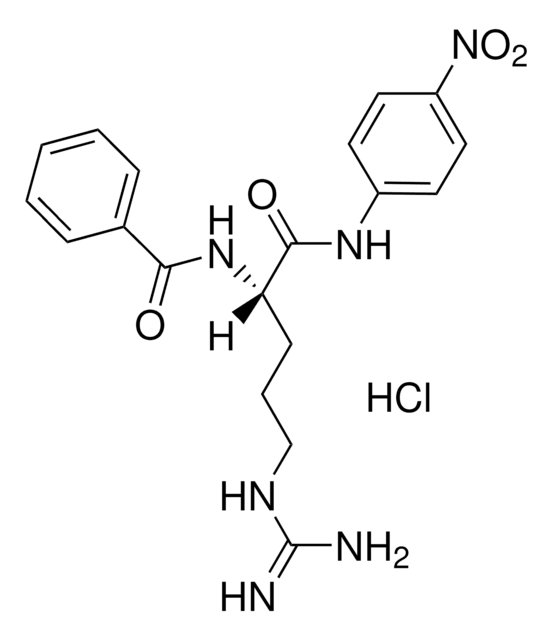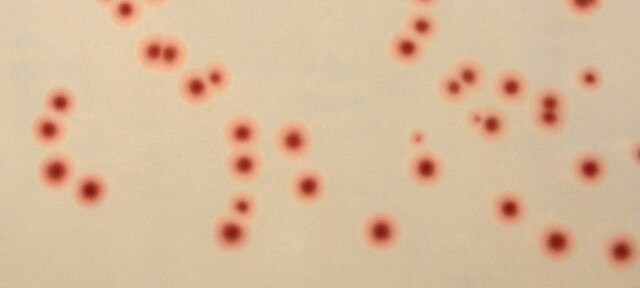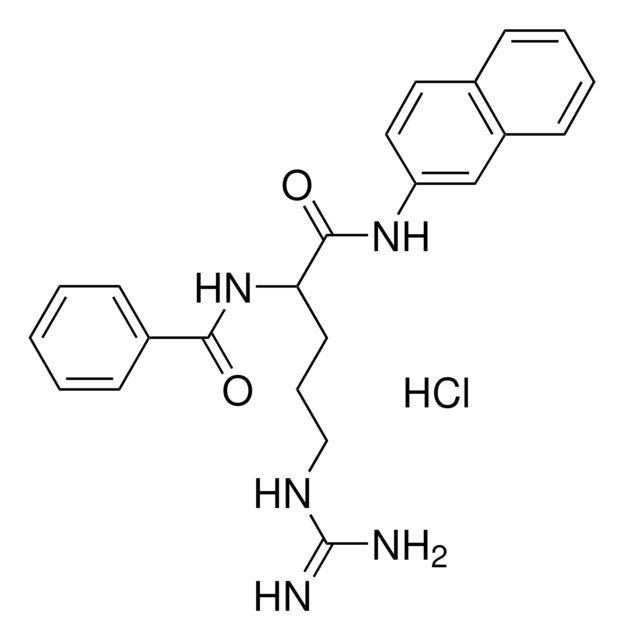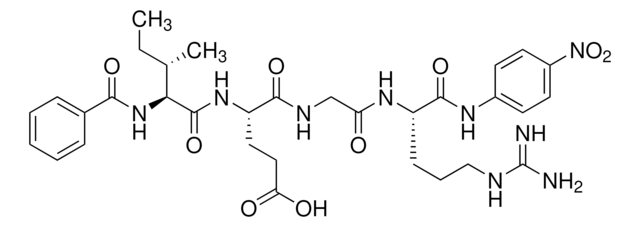B4875
Nα-Benzoyl-DL-arginine 4-nitroanilide hydrochloride
trypsin substrate, chromogenic, elastase substrate, ≥98%, powder
Synonym(s):
Nα-Benzoyl-DL-arginine p-nitroanilide hydrochloride, BANI, BAPNA
About This Item
Recommended Products
Product Name
Nα-Benzoyl-DL-arginine 4-nitroanilide hydrochloride, ≥98%
Quality Level
Assay
≥98%
form
powder
color
, white to light yellow to light brown
solubility
DMSO: 50 mg/mL (colorless to dark green-yellow to dark brown-yellow)
storage temp.
−20°C
SMILES string
Cl[H].NC(=N)NCCCC(NC(=O)c1ccccc1)C(=O)Nc2ccc(cc2)[N+]([O-])=O
InChI
1S/C19H22N6O4.ClH/c20-19(21)22-12-4-7-16(24-17(26)13-5-2-1-3-6-13)18(27)23-14-8-10-15(11-9-14)25(28)29;/h1-3,5-6,8-11,16H,4,7,12H2,(H,23,27)(H,24,26)(H4,20,21,22);1H
InChI key
DEOKFPFLXFNAON-UHFFFAOYSA-N
Looking for similar products? Visit Product Comparison Guide
General description
Application
Packaging
Substrates
Storage Class Code
11 - Combustible Solids
WGK
WGK 3
Flash Point(F)
Not applicable
Flash Point(C)
Not applicable
Personal Protective Equipment
Choose from one of the most recent versions:
Already Own This Product?
Find documentation for the products that you have recently purchased in the Document Library.
Customers Also Viewed
Protocols
Objective: To standardize a procedure for the enzymatic assay of Aprotinin.
Our team of scientists has experience in all areas of research including Life Science, Material Science, Chemical Synthesis, Chromatography, Analytical and many others.
Contact Technical Service












